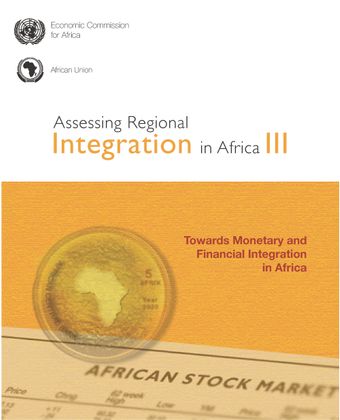Introduction

- Author: United Nations
- Main Title: Assessing Regional Integration in Africa III , pp 23-26
- Publication Date: January 2009
- DOI: https://doi.org/10.18356/9b99928f-en
- Language: English
Regional integration is now widely accepted as indispensable for expanding economic opportunities in Africa. Bigger markets permit better exploitation of economies of scale, while factor mobility across borders and the coordination and harmonization of monetary and fiscal policies would facilitate faster economic growth and greater welfare for participating countries. African countries consider regional integration the most direct route to fast, broad-based development and an effective way to overcome the limitations of small internal markets. They also perceive regional integration as a rallying platform for establishing African unity. The OAU Charter and the Constitutive Act establishing the African Union define the anchoring ideals of African unity (OAU 1963; AU, 2000), while the Lagos Plan of Action and the Abuja Treaty establishing the African Economic Community (OAU1980, 1991) spell out the economic, political and institutional mechanisms for attaining this goal. The treaties establishing regional economic groupings before and since independence, while reflecting the rich geographic and economic diversity of the continent, have pan-African dimensions.
-
From This Site
/content/books/9789210598804c009dcterms_title,dcterms_subject,pub_keyword-contentType:Journal -contentType:Contributor -contentType:Concept -contentType:Institution105



